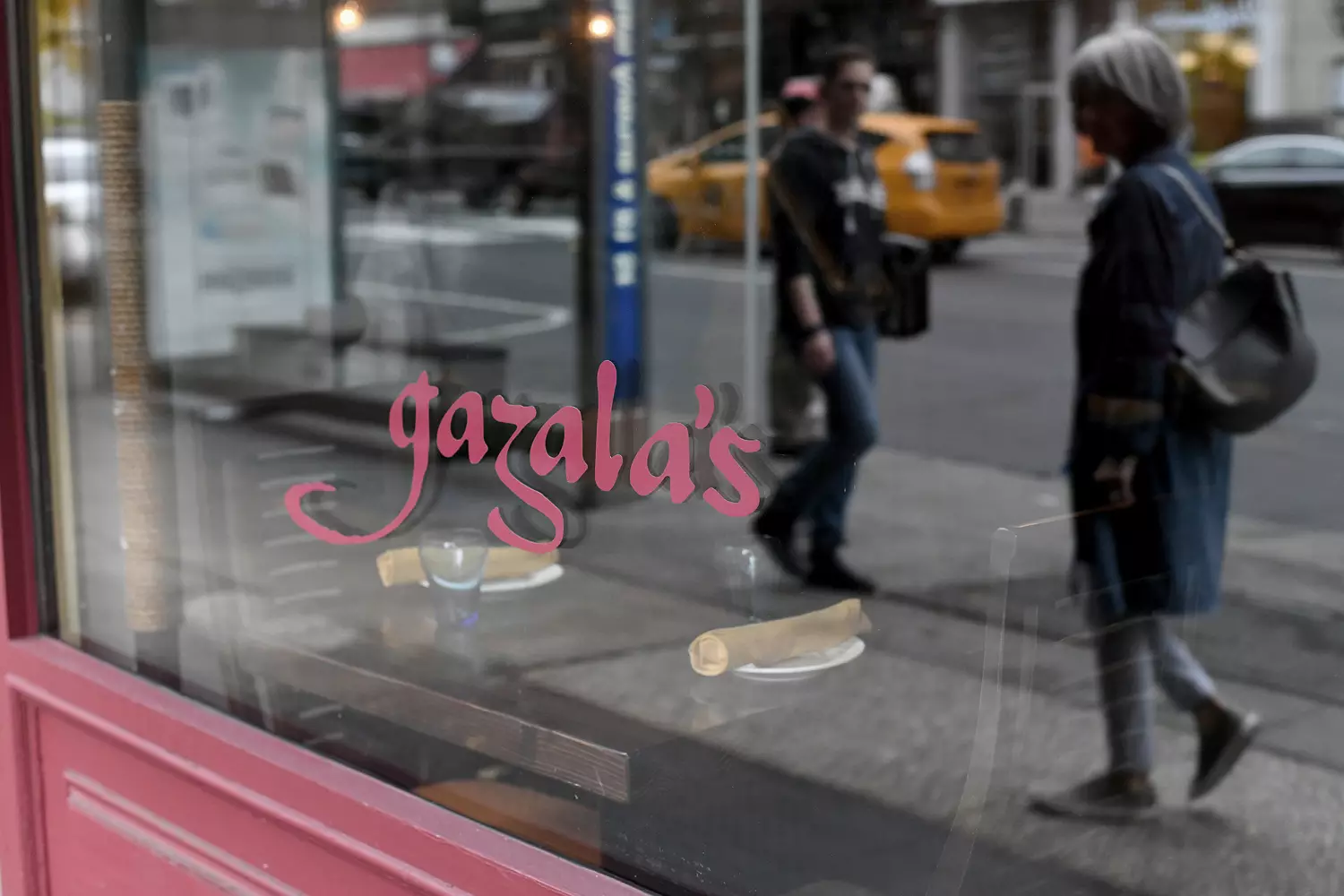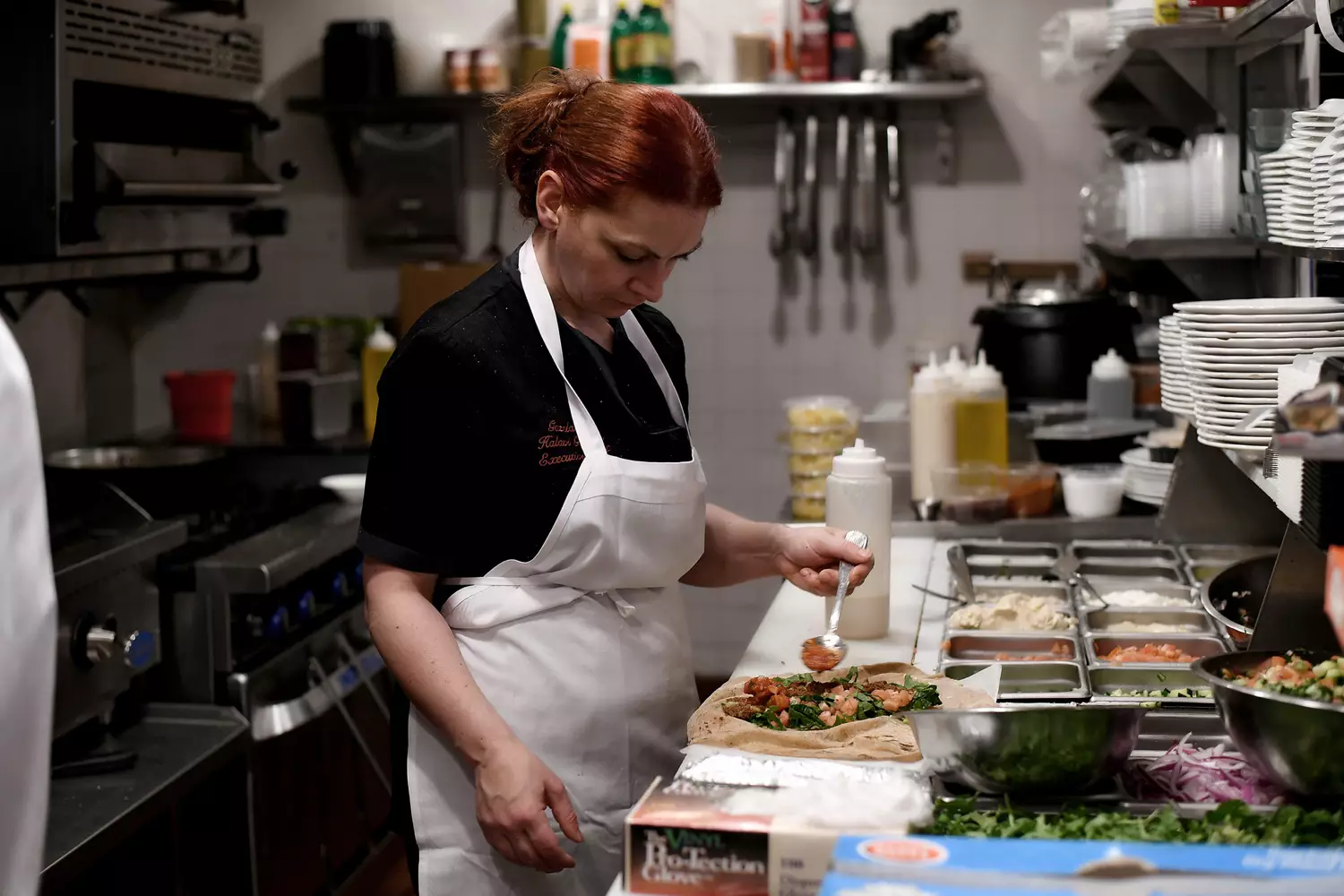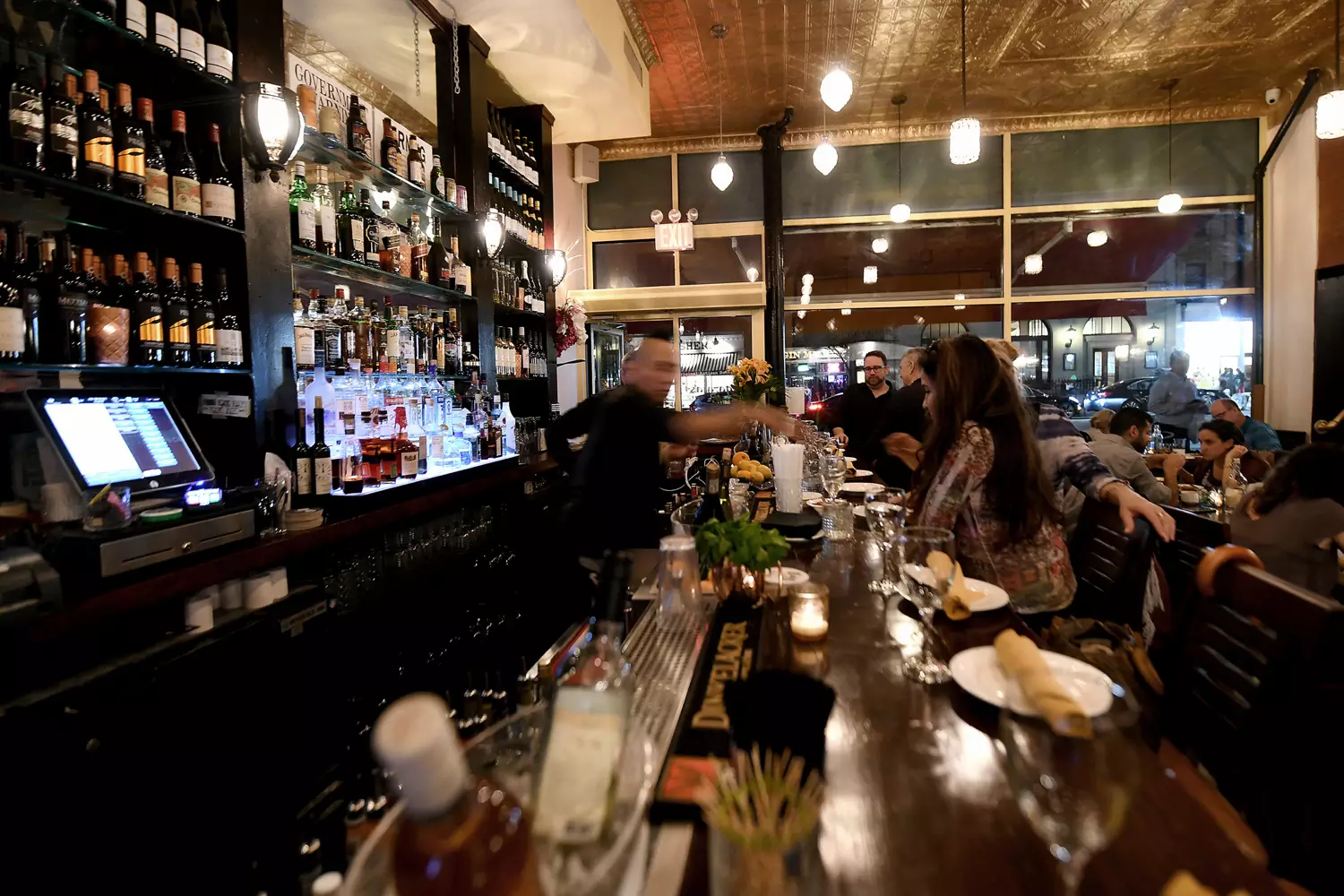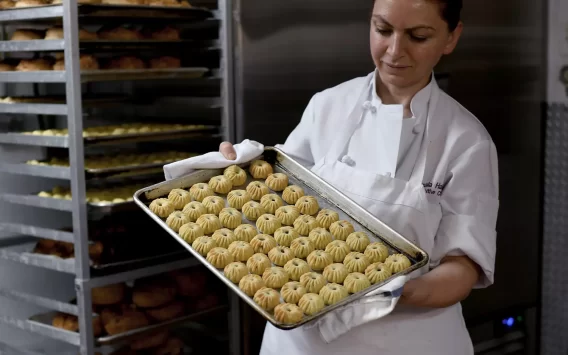University of Haifa alumna Gazala Halabi, who opened Gazala’s Place on the Upper West Side, dishes on her recipe for success.
It’s not often that a chef hailing from a village of 18,000 people finds success in the culinary capital of the world. But that’s exactly what Gazala Halabi from Israel’s Daliat el-Carmel did when she opened up her very own restaurant in New York City’s Upper West Side.
Gazala’s Place, which started as a small unassuming hole in the wall, has now two successful locations and is a love letter to Druze and Israeli culture. Roasted layers of eggplant slices stuffed with sun-dried tomato and mozzarella cheese and topped with tahini, and tomato boureka, a baked flaky phyllo dough crust pie filled with sun-dried tomatoes and homemade cheese, are some of the mouth-watering items on the menu.

But for Halabi, the journey to becoming her own boss was not an easy one. The University of Haifa alumna moved to New York in 2001 and started off as a small home-based catering business. Her creations — all lovingly made from scratch and infused with herbs, spices and oils imported from Israel — sparked a buzz in the community, and it wasn’t long before many craved her authentic cuisine.
In this conversation, Halabi spoke about her recipe for success, and how the community of Haifa and the University helped propel her to independence.
What made you want to enroll in University of Haifa and what did you study?
I enrolled in 1997. I had terrible English, so I had to do mechina (a preparatory course) first. I studied psychology. I went, truthfully, because it was accessible. The university was a half hour drive from my village and everybody there who wanted to go to school knew University of Haifa was the best option.
How did you find your way to New York?
One of my friends encouraged me to go to New York. She was right. I think I was able to do it because I have an Israeli mentality. I didn’t understand how unique that is until I left. Being Israeli, I felt capable of not doing things the normal way but doing it the Israeli way. Meaning, at first, I didn’t think I could make it in the big city. But when you pull yourself together and try it can really happen. Israelis know what they want, and they go after it. And they don’t stop until they succeed.
What have you learned at University of Haifa that prepared you for your current line of work?
I came from a small village. I was limited in every respect imaginable. I was brought up from a very young age that I wouldn’t work because that is in my culture. Even if I got my education, I’d end up working for my husband once I got married. It took me a long time to convince my dad that forging my own path was something I wanted to do.
When I went to University of Haifa, I was very engaged in my studies, but I didn’t think about the next step. I struggled trying to be a good student. But I saw everybody else around me not only study but work as well. Everything was so easy for them and they were so smart. They inspired me. They showed me that if you want to do it, then it’s possible. Had I not been inspired by my peers, I wouldn’t be in New York City, and the only people I’d be cooking for would have been my children.

As a Druze woman, what were your impressions of the city of Haifa itself? Did you feel it was inclusive?
I’ve never felt discriminated against. The relationship between Jews and Druze is complicated to explain, but very positive on the whole. Druze are welcomed by the state. So, I never felt being Druze was holding me back in any way. I never felt like I didn’t belong. I went to Shabbat meals and I even host them on occasion myself and I invited my Jewish friends. When I opened my restaurant in New York, I got so much support from the local Jewish community. They are my people.
What advice would you give to those studying at University of Haifa today, so they too can make the best of their education?
Listen to your teachers. They are talented. They know how to teach. The more we as Druze learn, the stronger of a community we will be. If we could bottle up their technique regarding higher education and absorb that into our community it will help in the long run.

For those unfamiliar with Israel or Druze culture, what would you want them to know?
Yes, Israel is a Jewish country. But when it comes to everyday life, everybody is welcome. Minorities can have a lot of pride and benefits by being in Israel and I’m so proud to be from there.
We Druze are a faithful people. We’re heroes. We’re the best fighters, but we’re also gentle. We don’t want to create problems, but if someone attacks us, we will never hesitate to fight back. We’re also very hospitable and we will even put ourselves in harm’s way if we feel our host is being targeted. My son is turning 18 and even though he grew up in the United States, he plans on enlisting in the IDF. I didn’t ask him to do this, it was a decision he naturally made on his own because it’s what a Druze would do.
But we’re also a private people. We would never impose our religion on others, in fact, it’s impossible to convert – you must be born a Druze.

